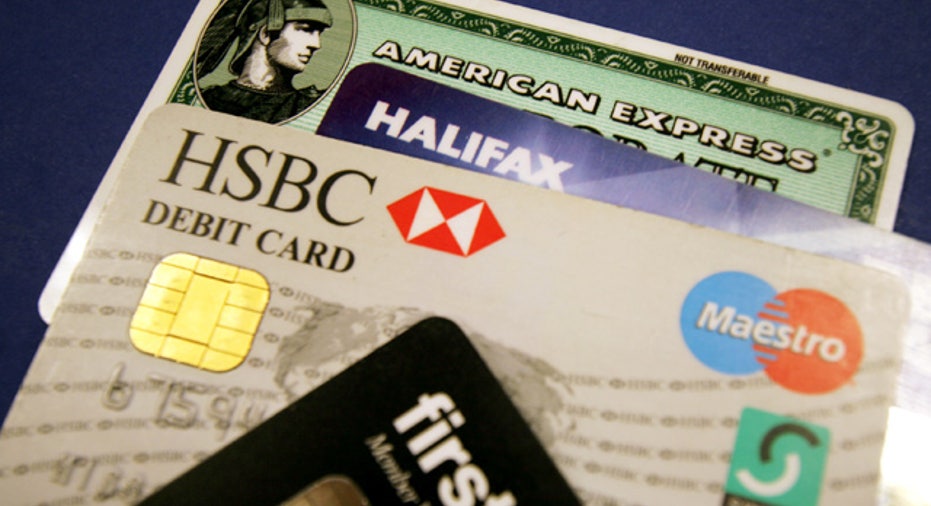5 Ways to Cut Credit Cards From Your Life

Getting a handle on your spending to achieve a more frugal lifestyle often involves taking the difficult step of examining your credit card use.
Some folks need to cut back. Others have realized they must completely stop using their credit cards.
"Many people have identified that they're spending more than 100% of their income, and they're subsidizing those expenditures with their credit card," says Mechel Glass, director of education for CredAbility, a national nonprofit credit counseling and education agency in Atlanta.There are a variety of steps you can take to cut credit card usage, but it takes some research to find one that's right for you. If you try one or more of these, you can expect to save money by not spending on your credit cards.
Pay off your card balance
Come up with a plan to save money and a schedule for tackling outstanding credit card debt. Get to the point where you can pay off your balance each month, and you'll buy only what you can afford, Glass says. You don't want to pay for food you ate several months ago because your balance keeps growing and you're never able to pay off your credit card debt, she says.
Budget your expenses
Go back to the basics. Balance your checkbook and figure out where you can save money each month. "When you're living frugally and are going to do away with credit cards, it's a necessity to do a budget," says financial author and radio host Dave Ramsey.
"Stuff just doesn't seem to jump into your buggy when you have a game plan and when you have a goal. The goal is frugal living for a reason: To build some wealth and get out of debt so (your) family has some security," Ramsey says.
If you create a budget every month, you have a better chance of reducing your expenditures until they are less than your income, with room to set up an emergency savings fund.Handle the purchases of large items in the same way. Delay the instant gratification of using a credit card by implementing the debt management lessons about saving you might have learned when you had a piggy bank or your first bank account. Once you have the money in your bank account to pay for an item, then you can buy it, Glass says.
Leave the card at home
Despite being told, "Don't leave home without it," the less often a credit card is in your wallet, the less likely you are to make an impulse purchase.
"You tend to supersize it and buy your friend a Coke when you buy with a credit card," Ramsey says.
To save money, Glass says remove the temptation before you go out. "We're so used to just swiping. You don't want to pull out a checkbook and write a check," Glass says.If you use cash, a checkbook or a debit card, you will need to be confident the money is available in your checking account before making a purchase. "I'm pretty convinced that this is not as big of a step as people act like it is," Ramsey says. "A debit card will do everything a credit card will do."
Cut up your credit cards
Couples and individuals find that this step has helped them spend significantly less and save money. Dr. Billy Richardson, a Los Angeles veterinarian, used his six credit cards to pay for everyday items, furniture, televisions and pricey dinner tabs. After graduating, he had stopped using a debit card and balancing his checkbook, things he done through high school and vet school. He was able to still pay off his credit cards and accumulate points for free travel and merchandise, even when monthly balances reached $1,000, $1,500 and $2,000.
"I lost that frugal spirit," he says.
He decided in 2007 to reduce his credit cards from six to none. He and his wife, Nikki, now balance their checkbook and use a debit card for purchases. "I know I was spending way more than I needed to because there was no emotional attachment," Richardson says.
The decision to cut up credit cards is controversial. Issuers may eventually decide to close the account if the card isn't being used. The closure of a credit card account could cause your available credit to drop and your credit score to suffer, possibly hindering your ability to get a home loan or car loan.
Pay with cash
The age-old idea of having your credit cards encased in a block of ice is still valid.Some people have a difficult time leaving their credit cards at home or saying no if the cards are available to them.
Ramsey cites MRI research by Stanford, MIT and Carnegie Mellon that found when people hand over dollar bills to pay for a purchase, it activates the brain's pain centers. "When you spend with plastic, it doesn't," he says.



















